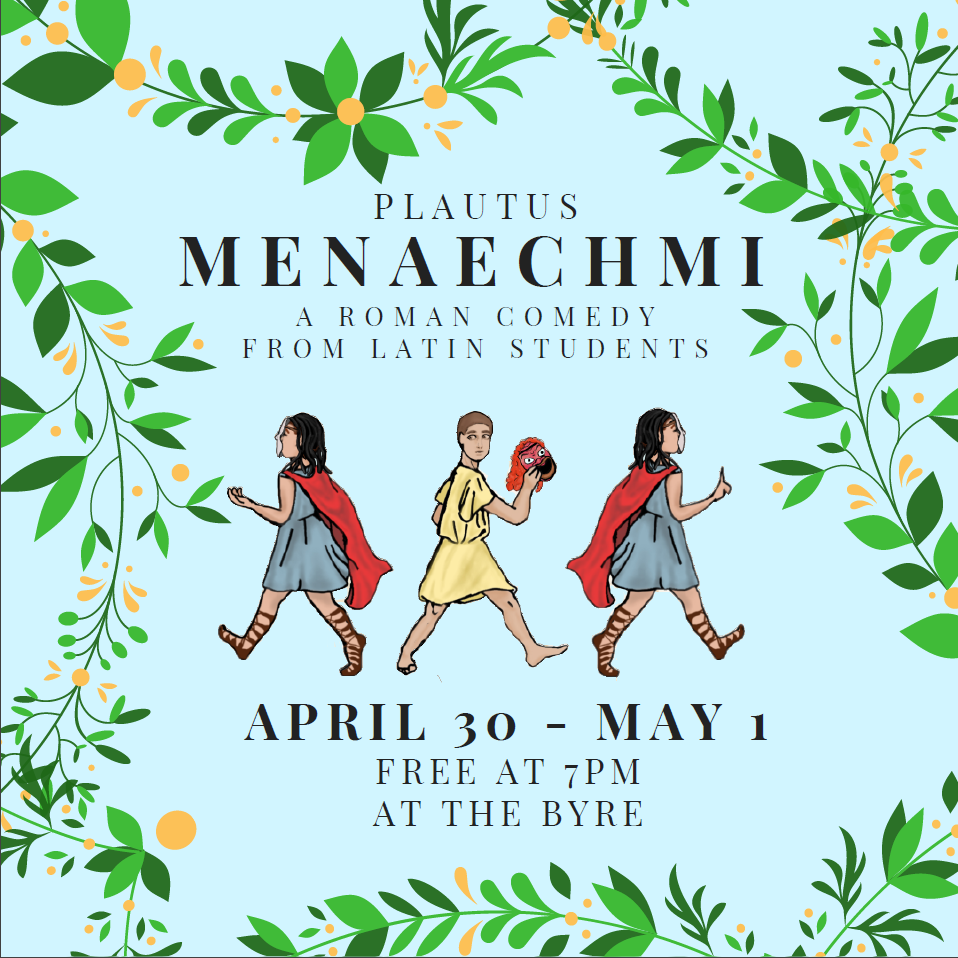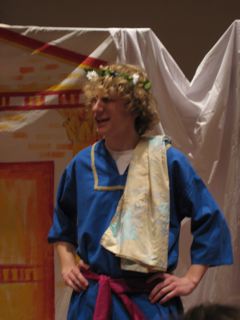

The playâs clever plot, which hinges on the confusion caused by mistaken identity, was borrowed by Shakespeare for his Comedy of Errors. No Plautine scholar has had reason to suggest that the Menaechmi contains any modifications of the Greek plot or any additional scenes, however short. Menaechmi (The Twin Menaechmuses), Plautus' most successful comedy of mistaken identity. The original title of the play was Manaechmi, which in translated version is known as The Brothers Menaechmus. Scene designer Richard Nebel did not want to recreate the kind of stage space Plautus and the Romans may have used. There Menaechmus is separated from his father and is lost in the city. 254 â 184 BC), commonly known as Plautus, was a Romanplaywright of the Old Latin period. Titus Maccius Plautus ( /ËplÉËtÉs/ c. The Brothers Menaechmus is a comedy of mistaken identity, written by the Roman playwright Plautus around the beginning of the second century BC. Every encounter each brother had following Sosiclesâ scene with Cylindrus played into the theme of miscommunication simply because no one was aware that the brother who they knew had a twin. When I decide what I want to write next, those decisions are a combination of what appeals to me as well as where holes might be in the novellas currently available. "Most important to me," he said, "was a set that became an expression of the dualized world in which Menaechmus of Epidamnum lived, the kind of world many American business- ⦠One of Shakespeareâs earlier plays from 1594, âThe Comedy of Errorsâ, is based upon the Greek writer Plautusâs story called âMenaechmiâ or in English âThe Brothers Menaechmusâ. NSF, NEH: Digital Libraries Initiative, Phase 2 provided support for entering this text. Deception in Plautus, a study in the technique of Roman comedy.

'The Brothers' is a translation and adaptation from the original play 'Menaechmi' (sometimes known as 'The Brothers Menaechmus'). How Did We Get Here? Egeonâs encounter with the Duke upon arriving in town sets up the possibility that the play could be serious and have a tragic ending. Plautus wrote a play in the sixteenth century called The Menaechmi. When did Plautus write? In this book, interestingly enough, Plautus writes the characters with Greek names and green scenery. Plautusâ source for the Menaechmi (âThe Twins Named Menaechmusâ) is unknown. With its shimmering wordplay, twisting plot and virtuosic use of metre, the play served a crucial role in the development of comedy as a genre, inspiring playwrights such as Shakespeare and Molière. it is said that the present ruler in Sicily is Hiero. Within the scenes, too, Plautus generally seems to have abstained Plautus.

The possibility of Plautine omissions has also to be reckoned with. Chapter 14.1: Plautus Plautine Comedy ⢠Plautus utilized his unique position between philosophical Greece and fun-loving Rome to shape a new âmulticulturalâ form of drama â thus his drama still works well today ⢠this opportunity helps clarify why he didnât write his ⦠Although a comedy, Plautus did add subtle ⦠Many people just call him Plautus. Anderson discusses how believle Menander is and compares it to how bleievable Plautus is. Some authorities credit him with upto 130 comedies however only 21 are certain. His comedies are among the earliest works of Latin literature that has not been lost. âdied 184 bce), great Roman comic dramatist, whose works, loosely adapted from Greek plays, established a truly Roman drama in the Latin language.


 0 kommentar(er)
0 kommentar(er)
